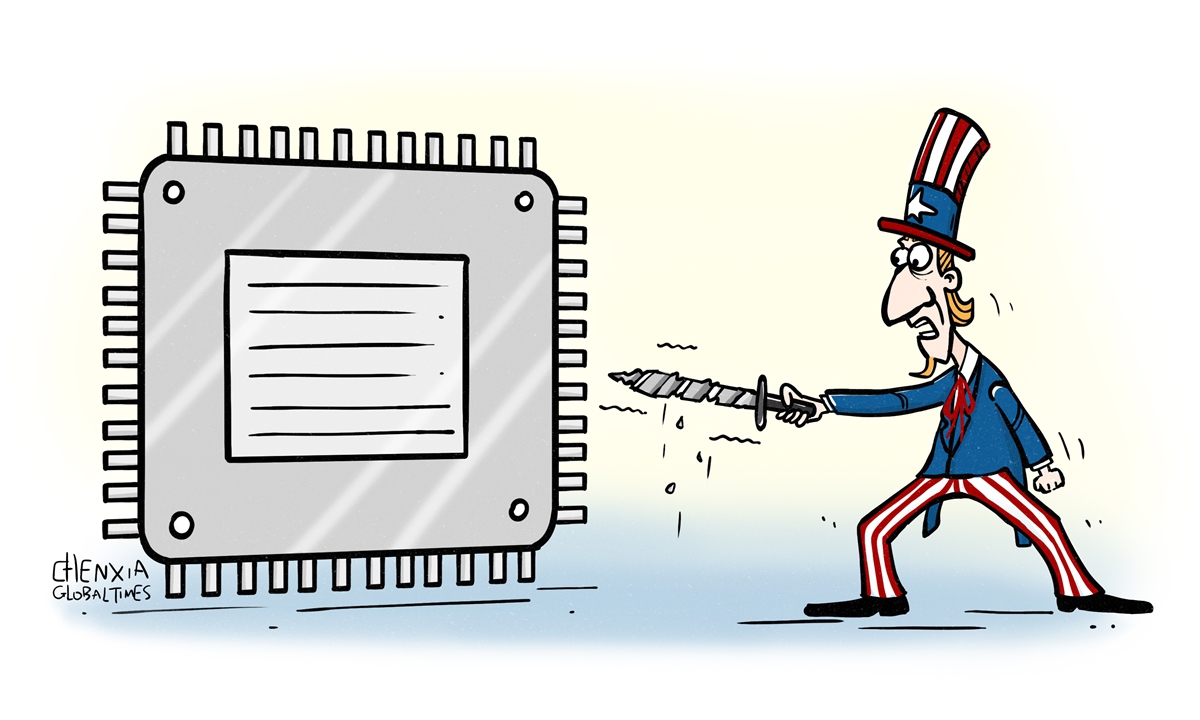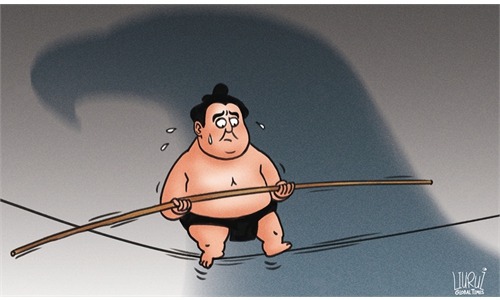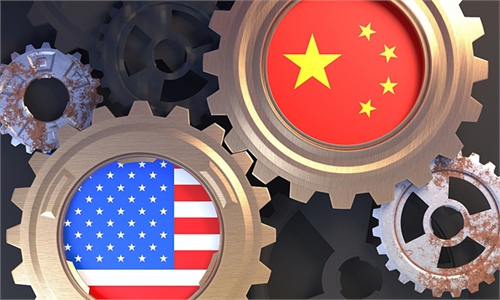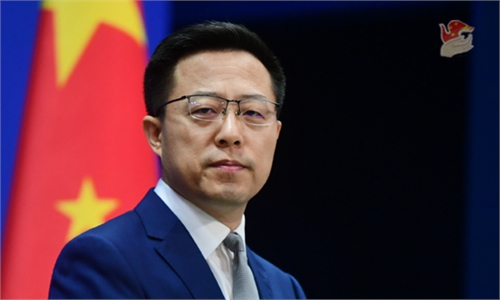
Illustration: Chen Xia/Global Times
Kevin McCarthy, the Republican leader in the US House of Representatives, said in an interview with Fox News on Sunday he would establish a special committee on China if he is elected speaker, Reuters reported on Monday.When mentioning his plan on Sunday, McCarthy again accused China of "intellectual property theft."
It is not hard to tell what is behind McCarthy's attempt to sell the cliché, which is clearly aimed at gaining political capital as he is currently vying to become speaker after his party won a narrow House majority in the midterm elections this month.
Such political opportunism is not uncommon amid the US' current poisonous atmosphere against China. "Intellectual property theft" is one of the usual excuses used by some American politicians to smear China and Chinese companies, which sometimes is even used to play up the so-called China threat to the US national security.
While McCarthy and his party do not represent the Biden administration, the fact that American politicians are still coming up with plans to take on China on a range of economic and military issues raises question as to whether the US is serious about avoiding further confrontation with China. The recent talk between the leaders of China and the US sent a positive signal that may help ease the tension of the situation, but the crux for bilateral relations lies in whether the US will really move in the direction in line with the consensus of avoiding further deterioration of China-US relations.
At present, the tech war launched by the US against China has become not only a major problem between the two countries, but also a source of huge uncertainties for the world economy. It is extremely selfish and irresponsible for American politicians to add fuel to the fire.
Over the past several years, in the name of "national security," Washington used a series of administrative and legislative measures, such as imposing export controls over semiconductor products and technology to China, blacklisting Chinese companies' access to cutting-edge technology, and roping in allies in blocking Huawei's 5G, with the view of undercutting China's technological progress to contain its development potential. Such political distortion of market rules and supply chains results in the fragmentation of the global industrial chains, aggravating the economic turmoil and supply-chain disruption facing the world economy.
The US tech war may create some short-term difficulties for China's technology sector. But as the effectiveness of the US technology hegemony is on the decline, its abuse of non-market rules will eventually take toll on itself. Take the US chip ban as an example. Given China's massive demand for chips, a study by BCG estimated that US companies could lose 18 percent of their global market share and 37 percent of their revenues by 2025 if the US continues its current chip bans on China. Also, a reduction in sales to China means decreased spending in research and development, which will harm the competitive advantages of US companies in the long run.
Indeed, for today's global tech industrial chain that is closely intertwined with each other, a country can only achieve "decoupling" by shutting itself up. This is certainly not China's option. Given China's advances in innovation and the massive market size, international companies are eager to gain a foothold in the Chinese market and benefit from its technological development. As long as China adheres to its opening-up policy and continues to strengthen its ability to stand on its own in science and technology, the US' intensifying tech war will only become a self-harming game.



